 SELECTED
ISSUE
SELECTED
ISSUE
|
|
Leisure Management - Ecsite Conference: Future Visions

Show Review

|
|
| Ecsite Conference: Future Visions
|

The science centre
and science museum
community met this year
at MUSE in Trento, Italy,
and asked what the future might hold
|
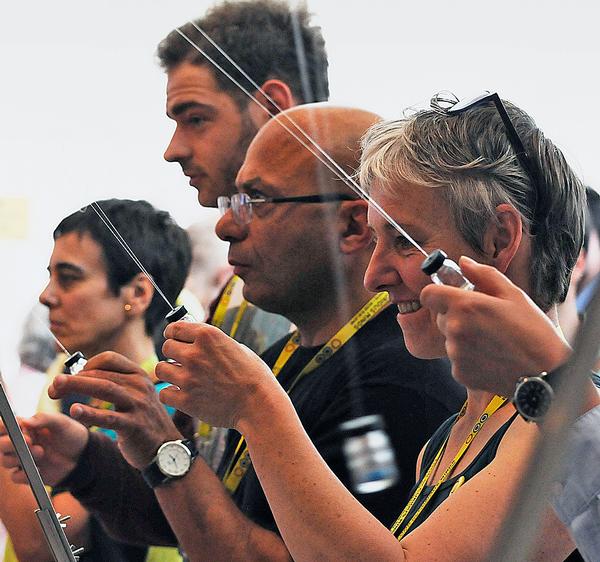
More than 1,100 delegates attended the 26th Annual Ecsite Conference, with roundtables, workshops and talks featuring 350 speakers PHOTOS: ECSITE /MUSE
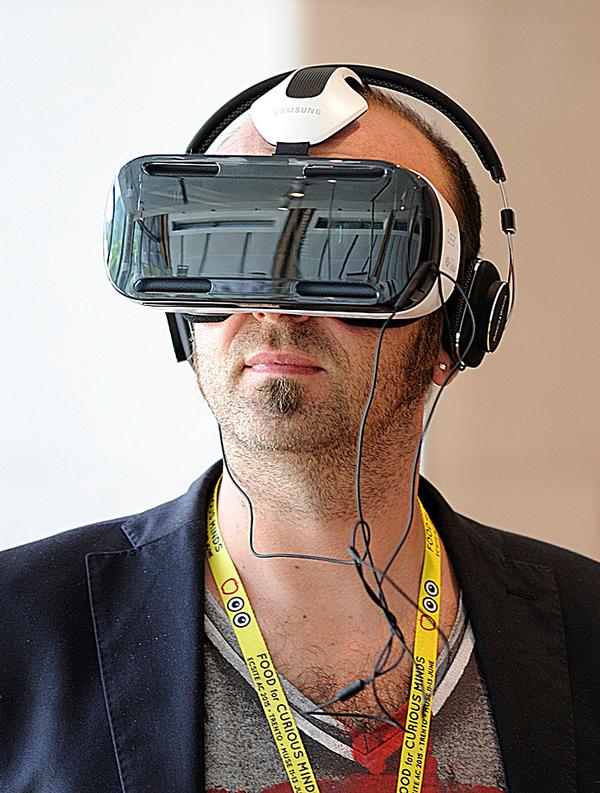
More than 1,100 delegates attended the 26th Annual Ecsite Conference, with roundtables, workshops and talks featuring 350 speakers PHOTOS: ECSITE /MUSE

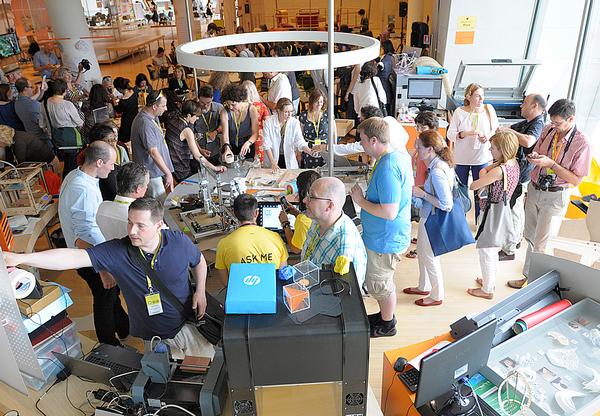
More than 1,100 delegates attended the 26th Annual Ecsite Conference, with roundtables, workshops and talks featuring 350 speakers PHOTOS: ECSITE /MUSE

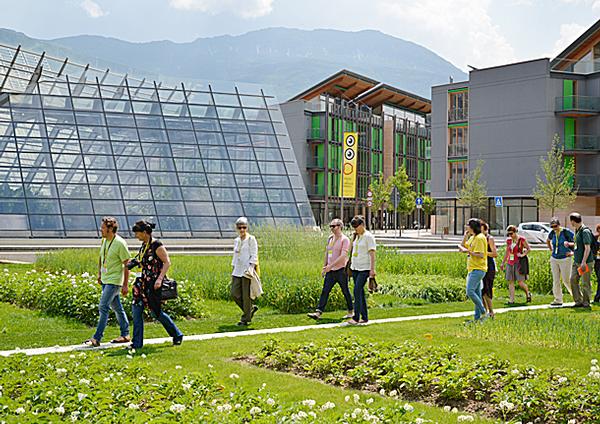
More than 1,100 delegates attended the 26th Annual Ecsite Conference, with roundtables, workshops and talks featuring 350 speakers PHOTOS: ECSITE /MUSE

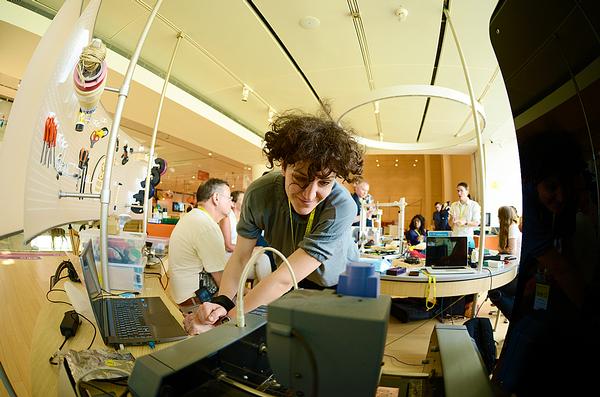
More than 1,100 delegates attended the 26th Annual Ecsite Conference, with roundtables, workshops and talks featuring 350 speakers PHOTOS: ECSITE /MUSE
|
|
|
Science centres are all about the future – imagining, innovating, inspiring the next generation. But what will science centres themselves be like? What should their missions be? Who will they be talking to, and what about? It was a hot topic at this year’s Ecsite Annual Conference, where industry leaders shared their views of tomorrow’s science centre at a pecha kucha forum at MUSE
|
|
Tekniska museet
Stockholm, Sweden
"Future visitors will be well travelled, communicative and constantly connected. They’ll expect interaction and interactivity. They’ll want to influence and make a difference. We must use that energy and we must listen to the audience – they’ll expect to be part of the institution.
The future science centre will be innovative, sensory and inclusive. It will be more democratic, involving more people from different backgrounds. Science centres need to be accessible for everyone and need to reach out to more people. The next generation of science centres will work closely and cooperate with the audience. This democratic approach takes time, planning and resources. It requires a willingness to let go of control and the courage to actually do so."
|
|

|
Association of Science – Technology Centres (ASTC)
Washington, DC
"I’m fighting the idea that science centres should be safe places for difficult conversations. We need to become places where we introduce the risk of decision-making based on science. We’ll still inspire kids to be rocket scientists or stem cell researchers, but science centres will also have to teach them how to self-assess what they learn and the skills they need to access the workforce and become science-literate citizens able to make evidence-based decisions.
Science centres will need to prioritise topics, such as climate change and food security. We’ll increasingly recognise that science centres aren’t separate from politics – that we can play a role in shaping the world. We need to equip people with the skills to use science in their decision-making so they can influence the world around them. To do that we must preserve and develop the researcher that’s in every child, and allow them to use their acquired knowledge for the better good.
We must introduce philosophy to science centres because the scientific method and philosophy have this in common: they build the critical thinking kids and adults need in this world."
|
|

|
Exploratorium
San Francisco, California
"I have conflicted feelings about futurising museums. I am wary of diluting our mission to “flavour of the month” by chasing trends and changing just for the sake of change. Human nature doesn’t fundamentally change and storytelling and social interaction don’t go out of style. Social media, for example, is a new and vital vehicle of communication, a new kind of word of mouth, and yet museum visitors still crave human interaction and face-to-face experiences. However, science centres can and should respond to the real world changes our visitors confront, such as the shift in population demographics and the science of climate change. Furthermore, we don’t need to disrupt or completely discard traditional museum practice. We can ensure our relevance by bringing in individuals from outside our field, embracing new perspectives and utilising new types of interpretation. We should accept the inevitable need to evolve and the equal need to carry forward the best of established practice so that we will incorporate new ideas as a natural response to changing contexts and resources."
"“We can ensure our relevance by bringing in individuals from outside our field, embracing new perspectives and utilising new types of interpretation”"
|
|
MUSE
Trento, Italy
"Literacy is changing. It’s not just about learning, but about understanding. Science centres need to teach 21st-century competencies: critical thinking, problem solving, communication, collaboration, creativity and innovative spirit. In this sense, literacy means global awareness, ie civic literacy, environmental literacy, technology and media literacy, financial and economic literacy. Therefore, we need to stop being primarily skilled observers, commentators and documenters, and become active participants in our communities, working with them to understand and solve the world’s problems.
Also, we need to support physical and mental activity for older people and policies of social mobility and integration to deal with the impact of an ageing population and ensure a fair society."
|
|
Wellcome Collection
London, UK
"We think our institutions are instruments for doing things in the world, but what if we abandoned the sense we are using instruments? Instead of trying to do things with them, be proud to have places where people can come for charged or social experiences (with science as the backdrop). Rather than seeing science centres as ways to change our audience, what if we were just confident that something fascinating happens when they visit? Let’s think about quality and value rather than effectiveness. Ask: “Is it any good?” rather than “does it work?”
|
|
Museon
The Hague, the Netherlands
"Museums, science centres, zoos and other attractions are converging. The virtual and the real will also continue to converge. Science museums will become more commercial, as cultural entrepreneurs. They should be open, relevant and meaningful, and should not underestimate popular culture. Science museums should help us make sense of all the information that’s available and hold experimental workshops as a starting place for imagination and creativity. They need to link local identity to global trends, connect past, present and future and reconnect culture and science with a focus on social innovation."
|
|
 |
| Originally published in Attractions Management 2015 issue 3
|
|
 |
|